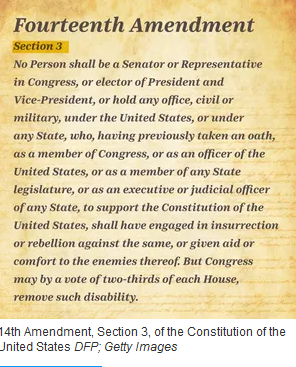
Our failed accounting system is a direct contributor to the coronavirus crisis. At first glance, such an assertion many seem absurd. After all accountants are boring except when Ben Affleck is THE ACCOUNTANT. Debits to the window, credits to the wall. Assets. Liabilities. Income. Expenses. All cut and dry and very precise. How could it be the problem?
When I designate accounting as a problem, I am not referring to illegal actions. This is not about Enron accounting or laundering money for the Russian mob. Criminal activities involve the detection of fraud and are not an indictment of the accounting system itself. Instead I am referring to situations that are in full compliance with the rules and regulations. It is precisely those rules and regulations that are the problem, not for what they do, but for what they don’t do.
GOODWILL ACCOUNTING
Sometimes accountants can accommodate the real but not tangible. Goodwill occurs when a purchaser pays a premium. The amount of the purchase exceeds the fair market value of the assets minus the liabilities. Why a purchaser would pay a premium is not the issue. The accounting issue is that there has been an exchange of money and the money spent is too much on paper. Obviously it is not too much for the purchaser. The accountant has to account for this excess. Goodwill is the term used. It has to be called something. It used to be amortized. Eventually the goodwill be gone. In effect, now the company is your own. There is no more premium and you better hope the premium was valid in the first place or else you are out the money.
I mention this example to show how the accounting profession accounts for something that really exists – the purchaser did pay the premium – even though it seemingly does not exist otherwise or did not exist until the moment of purchase. The problem I want to raise is when the accounting system does not account for costs even though company directly contributes to the money other people/organizations must pay.
POLLUTION
Accountants measure the cost of goods sold. How much does it cost to produce a widget or a ventilator? What are the materials needed? What is the labor needed? What are the overhead costs that need to be allocated to the individual units produced? If you want to produce additional units what will it cost? In a manufacturing operation, this analysis is supposed to be the comparatively cut and dry part of accounting. This information is essential to determining the market price of the widget or ventilator.
What hasn’t been included is the cost off the pollution generated by the production of the unit. It used to be easy. There was no cost. The pollution was discharged by a chimney into the air, a pipe dumped it into a river, or in some cases it was transported, perhaps at a cost, to a dump. For the manufacturer it was case closed.
Eventually there came a time when We the People realized there was a cost for pollution and it wasn’t being included by the accounting system. The cost had been outsourced to the people who lived near the plant or to the taxpayers or both. The cost was paid in the poor health from the air people breathed, the water people drank, bathed in, swam in, and washed clothes with. And the fish paid it to. Chemicals from landfill also leached into waters and again people paid the price.
The cost of pollution to society in general and to specific people then became recognized. Regulations were passed that prohibited the creating of pollution in the first place. Clean-up costs were imposed. Settlements were reached with the people afflicted and their lawyers. And We the People paid taxes to clean up the mess that was not accounted for by the accounting system.
One way to avoid the costs of curbing pollution in ongoing manufacturing was to relocate to a place where it could still be outsourced at no cost.
THE CHINA SYNDROME
Over the past few decades, American businesses have relocated manufacturing mainly to reduce the costs of labor. At first, businesses moved from the union North to the non-unionized South. Then they moved to Mexico. Finally, the big move was made to China. Even assuming China was our friend and even assuming the game wasn’t rigged against American manufacturing, it genuinely was cheaper to relocate to China. Based on the way the accounting system was set, the rational business decision was to move.
But as with pollution, there was something that was not included in the accounting system. And that omission was deadly. What is the cost for the destruction of a community? What is the cost for the destruction of a person’s sense of self? For their sense of security? For their ability to provide for a family? For the opportunity to pass on a legacy to a child?
In my blog Spartacus, Local History, and Local Newspapers (Feb. 24, 2020) after the death of Kirk Douglas of Amsterdam, New York, I wrote:
Once upon a time, Amsterdam was an industrial powerhouse and the home of Mohawk Carpets. [Elwood] Museum Executive Director Ann Peconie’s grandmother had worked there. The workers in the factories were from many countries in Europe. The newspaper clippings attest the civic involvement of these different peoples. They had their churches, social clubs, and activities. It was not a “bowling alone” community that defines the isolation of people in communities today or the earplug people too engrossed in their gadgets to notice what is going on around them.
That blog was about the decline of the local newspaper that used to cover such community events. “Who will tell the story?” in the local community when there is no more local newspaper if I may borrow from Hamilton.
A similar story can be told about Clarksburg, West Virginia. In fact it was told in “The Penance of Dog” by Sam Quinines (The Atlantic, May, 2019). In that story the destruction of a community became a story of death. The subject was the doctor of the town who prescribed the drugs that killed people and how he eventually became an addict himself.
The same story can be told about countless communities in America. In the op-ed section in Sunday’s New York Times (March 29, 2020), Nicolas Kristoff continued the saga of the decline and destruction in Yamhill, Oregon, the community where he grew up. I was scheduled to hear him speak about it on his book tour at the Scarsdale Adult School until it too became a casualty of the coronavirus.
The price America pays for the rational business decisions to relocate manufacturing to China is the destruction of communities throughout the country. Just as there was no place in the accounting system for the cost of pollution to appear in an Income and Expense statement, so there is no place for the cost of the destruction of a community. The price is paid by the very people who live in that community. The price is paid by the community itself as the social fabric is ripped apart. These factories tended to be sponsors and contributors to the social, civic, and educational organizations of the community. Now that is gone. And the price is paid by the country as a whole as the cost of healthcare skyrockets and the average lifespan decreases. How do you preach the gospel of the American Dream when the heart and soul of a community has been ripped from you and moved to China?
Who pays the price for this? It is not the manufacturer, it is America.
CORONAVIRUS
Then suppose there comes a time when it becomes clearer that China is our rival and we need what they produce and we don’t anymore. The Chinese news agency Xinhua claimed that the world should thank China instead of blaming it for the spread of the coronavirus. Suppose China banned the export of drugs, “the United States would sink into the hell of a novel coronavirus epidemic.”
While that has not happened yet, the Chinese news agency spoke the truth. We need what China produces and we don’t anymore. We can talk all we want about how we were the arsenal of democracy in World War II but we aren’t anymore…and Detroit is not the city it was then either. It is China who is offering the rest of the world the medical supplies and equipment it needs. China makes the masks. America is left scrambling. Even if we had an adult in the White House we still would not have the manufactured medical goods we need. And based on the way accountants measure the cost of goods manufactured and sold nor are we going to in the future either.
The day of reckoning for our failed accounting system is upon us. We can no longer afford the destroyed lives because costs are cheaper elsewhere. We can no longer afford the destroyed communities because costs are cheaper elsewhere. We can no longer afford to have a country at the mercy of others because costs are cheaper elsewhere. When we examine the costs We the People are paying because businesses relocated we need to realize the shortcomings of the accounting system. It does not measure all the costs involved and We the People are paying the price. Perhaps the coronavirus crisis will open our eyes to what has happened so one day we can begin to redress the problem and account for all the costs involved, not just the ones that appear on the balance sheets and income statements today.




